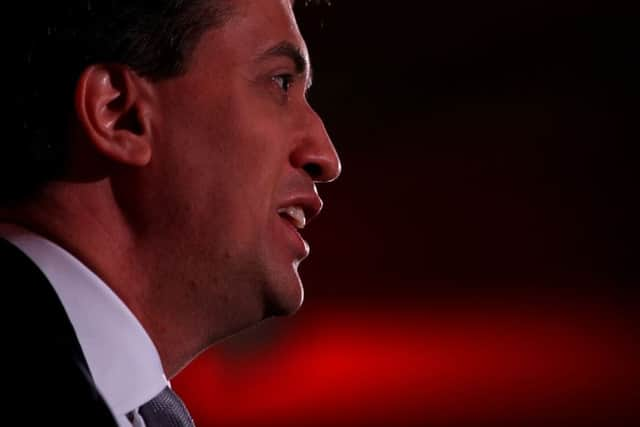Jayne Dowle: A system that leaves us at cross purposes in voting booth


Some people might think I am making a big fuss about nothing. However, I still happen to believe in conviction politics. The problem is I’m convinced about the ability of Dugher – who is vice-chairman of the Labour Party – to represent us in Westminster, but I’m not convinced his leader is qualified to run the country. This opens up a debate which will have repercussions long after the votes are counted. Do we vote for a MP? Or do we vote for a party? In a political climate which promises to become ever more complex, what matters most – the individual or the party they represent?
What to do then? Should I just vote anyway and not give it too much thought, should I make a “protest” vote for another candidate from another party, or take a choice which does no-one any favours – decide to opt out of voting altogether to save myself the angst?
Advertisement
Hide AdAdvertisement
Hide AdWhen I stand there with that stubby pencil in hand, I want to back the candidate I support in my heart, not take a calculated risk. I take the right to make a democratic choice at the ballot box seriously. I can’t just turn up and vote without thinking about it. And because I take it seriously, I think of all the repercussions.
The last time I was in a similar situation happened to be the first time I ever voted at all. It was 1987, so forgive me if I can’t recall all the details, but I remember being cornered. I wanted to follow my instincts and vote Labour, but to do so could have split the vote and allowed the prospect of a Conservative member to be returned. My baptism of fire involved getting my head around the prospect of tactical voting for the Liberals in order to oust the sitting candidate Tory Steven Norris – not the most popular figure with students in his constituency of Oxford East.
In the end, after a lot of soul-searching, I decided to follow my heart. A cross went in the box for Labour. And when Andrew Smith, still the sitting MP, was returned anyway, I was glad I did. In my 19-year-old mind, I wanted the first vote I made to be for a party I had supported and campaigned for since primary school. Three decades later though, I think it is fair to say that my political reasoning skills are just a little more sophisticated. I support my own MP, and his Labour colleagues who represent the rest of Barnsley, because they generally do a great job of supporting and promoting the interests of their constituents, but I cannot say, hand on heart, that I support their leader or all his policies.
Such are the consequences of our first-past-the-post voting system. It puts us, the ordinary voter, into positions which we would rather not find ourselves.It forces us to contemplate giving up our democratic right in order to make a wider point. What would be the point though, of making a protest vote to register lack of faith in the Labour leadership at the expense of supporting a decent MP? Who would know – or care – except me and the candidate himself, who would find his support diminished? And taken to its logical conclusion, if everyone decided to register their dissatisfaction in the same way, we could end up with a decent MP ousted. For what?
Advertisement
Hide AdAdvertisement
Hide AdIf our political system worked effectively, we wouldn’t have to waste time and brainpower on trying to solve this conundrum. And we wouldn’t have political leaders such as Ukip’s Nigel Farage actively encouraging people to vote tactically, as it is “the best way for parties like Ukip to get more people elected”. No wonder ordinary voters lose faith in the process.
“Tactical voting” does not only affect individual consciences. As Farage is only too aware, it has the power to shape a nation. In a recent article for The New Statesman, political commentator George Eaton argues that the extent of centre-left tactical voting (far greater than its centre-right equivalent) helps to explain why Labour’s majorities were so large in 1997 and 2001, and why it was able to win a majority of 66 seats with just 35 per cent of the vote in 2005.
For most of us though, the science of psephology is best left to the experts. All we want is a decent MP who works hard for us. Let history deal with the rest. Come May 7, I will try to remember this. I suggest you do the same.